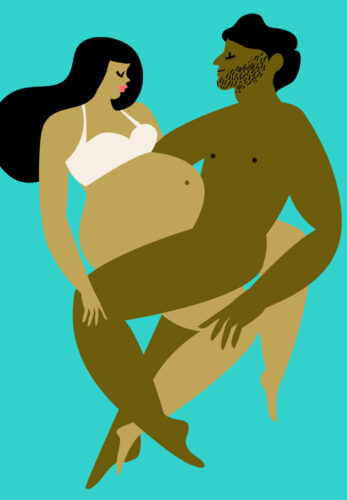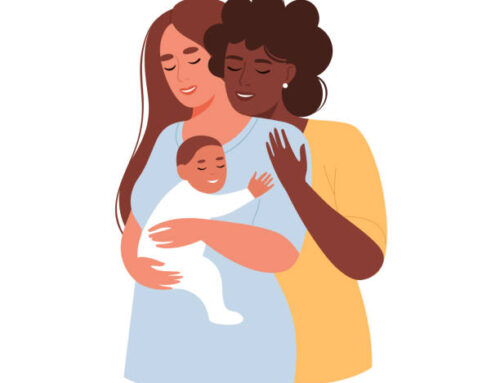
Pregnancy, Childbirth & Sexual Behaviors
The purpose of this research was to take a look at what we know scientifically about sexual behavior during and soon after pregnancy. Across 36 studies, we found that the frequency of vaginal intercourse dips sharply in mid-to-late third trimester. Unfortunately, only five studies examined sexual behaviors outside of vaginal intercourse, but among those, there appear to be little to no changes in frequency. We also found that sexual positions take a shift during pregnancy with rear-entry positions becoming more common, but surprisingly, missionary remained popular throughout pregnancy! Despite increasing education about safety of sexual behaviors during pregnancy, our study found that concerns about having sex during pregnancy are still quite common: about half of the U.S. and Canadian samples expressed concerns about sexual activity harming the pregnancy or fetus, leading to unnecessary/unwanted sexual abstention.
Studies of sexual behaviors after childbirth show that in most cases, vaginal intercourse occurs at least once by 6 to 8 weeks postpartum and sexual behaviors in general become more common after 12 weeks. Vaginal pain with intercourse was experienced by 30 to 62% of women three months after childbirth, but painful intercourse was resolved for most by 6 months postpartum. Five studies looked at how many new mothers were having orgasms and found that reaching orgasm was difficult for most new mothers but this difficulty was largely erased by one year postpartum.
When we started this project, we wanted to make sure we also examined HOW scientists like ourselves are learning about sexual behavior during and after pregnancy and what we discovered was that, as a whole, we are missing some very important details. Our samples are very white and very heterosexual. We also place much too much significance on vaginal intercourse alone. There is so much more to people’s sex lives than just vaginal intercourse and to really understand how pregnancy and childbirth impact sexuality, we need those details! Solo and partnered masturbation, oral sex, kissing—these behaviors are important to individuals and should be to science too! We’re also making some unnecessary assumptions. Very few studies take the time to ask their participants if these changes feel positive, neutral, or negative; instead we are assuming drops in frequency or changes in types of behavior are negative. Let’s stop doing that. Studying sexuality during pregnancy is tough work, but collectively, we have several opportunities to do this work better and I’m excited to see what we learn as we continue to answer these important questions.




